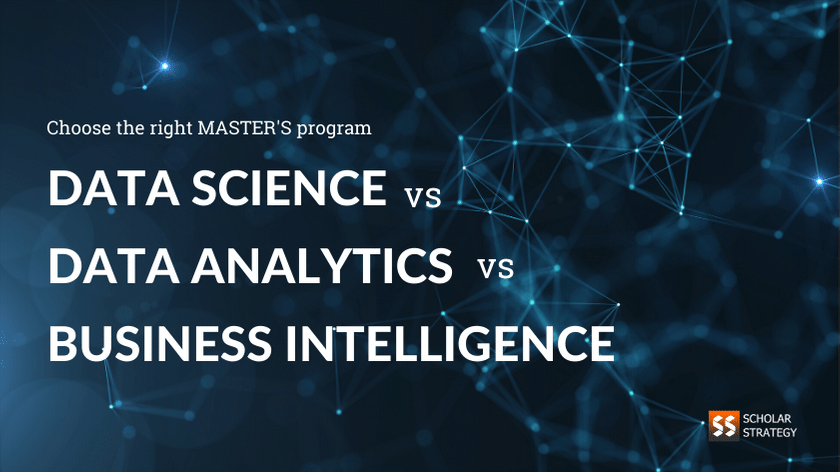Increasing number of students are getting interested in MS in Data Science these days – Almost every cool company is looking to hire data scientists. Many MS aspirants, therefore, are trying to get a job as a Data Scientist.
Here comes the twist then. There are so many graduate programs in this field that one may end up thoroughly confused. For e.g. there are MS in Data Science (e.g. Columbia), MS in Computer Science with Data Science (e.g. USC), MS in Business Analytics (UT Austin), MS in Analytics (UIUC) programs etc.
Data Science and Analytics is an interdisciplinary field that combines the magic of programming, mathematics and business. It is important to understand which aspect are you interested in before selecting the right program for yourself. Think of it like this – businesses are continuously generating streams of unstructured data which can be converted into meaningful insights.
A relevant example that comes to mind is OKCupid, the dating website. Its super popular blog OKTrends offered a unique brand of social analysis relying on statistics gathered from the site’s userbase. To convert this data to intelligence, one needs to be able to mine the data, analyze it and report it in an easy to understand manner to the decision makers.
Data Analytics deals with gathering relevant data from ton of data (including junk) generated by a business. This, then, becomes an extension of data warehousing and mining. This requires a solid understanding of SQL, Hadoop, Teradata, ETL and realtime data processing tools etc. This can be simply databases focused (in case of MIS such as CMU BIDA) or go into deeper statistical computations (in case of quant oriented MS Analytics programs such as UIUC. The program includes fundamental training in mathematical and applied statistics as well as specialized training in data management, analysis, and model building with large datasets and databases.).
Data Science as a Computer Science field deals with the algorithms and programming that can enable one to work on such huge datasets. Relevant tools required to do this include R, Python, Excel(Advance) with VBA macros etc. Combined with Machine Learning, it can help identify a future trend that doesn’t exist today. This can be used to derive actionable insights for creating future impact. MS Data Science programs mostly cater to this.
On the other hand, combined with business understanding, these data insights can be presented into readable reports using which management can take better decisions about the business (again covered under MIS or MSBA programs). I associate this with Business Intelligence although individual terminology might differ.
As a Data Science aspirant, whether you are interested in the quant side of it or programming side or business intelligence side. Look at the curriculum of the courses very very carefully and then decide where you wish to go. Being a relatively new discipline, schools are still figuring out what works and what not. Therefore, be careful because otherwise you might end up paying heavily for a program that just glosses over the key skillsets and leave you stranded upon graduation. Understand what are employers looking for and how to build those skillsets. And it is highly recommended to get started with some MOOCs before you even apply to grad programs. These will give you a good taste of what to expect and make an informed decision when selecting the right program. Some of the useful MOOCs are:
- Python for Data Science on edX
- R Programming on Coursera
- Hadoop Platform and Application Framework also on Coursera
- Machine learning by Andrew Ng on Coursera
- JHU data science, analytics edge on edX
In the end, what matters are the hard skills you pick up because you need to clear those tough interviews. With exploding popularity, competiton for data science and analysis roles is growing off the charts. Start working on it from today.
You should also read a follow up post on Analytics.
Previously, our students have gone to pursue MS Data Science at Columbia, MS Analytics at UIUC, MIS BIDA at CMU and MS Business Analytics at UT Austin courses among many others. Full results are available here.



No comment yet, add your voice below!